Emerging New Civilization Initiative
World Academy of Art & Science in collaboration with the Club of Rome
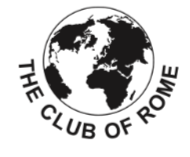
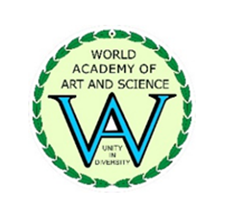
Emerging New Civilization Initiative
March 21-22, 2019
Inter-University Center (IUC), Dubrovnik, Croatia
Leadership begins with ideas that represent an aspiration for achievement, a vision of unrealized possibilities and a pathway for accomplishment.
The end of the Cold War offered an unprecedented opportunity for transition to a peaceful, democratic, harmonious global society united in pursuit of sustainable development for all humanity. Yet a quarter century later, both the prospect and dreams have vanished.
A shared vision and unified leadership are nowhere to be seen at this critical juncture in human affairs when it is most needed to prevent the loss or reversal of the most important gains of recent decades. The aim of this initiative is to develop global leadership in thought to shape the future of human development.
On March 21-22, 2019 the World Academy and the Club of Rome convened a meeting of concerned and committed individuals and organizations to share insights and explore pathways to a new civilization initiative that recognizes the systemic interconnectedness of people, nations, sectors, activities, challenges, forces and consequences presiding over global development and seeks solutions and processes that transcend the limitations of the current paradigm and giving shape to pathways toward a better future for humanity.
In June 2013, the World Academy of Art & Science collaborated with the United Nations in Geneva to organize an international conference on New Human- Centered Development Paradigm bringing together 200 diplomats, scientists and thought leaders to call for the formulation of a new pathway for human development in the 21st century that would question, challenge and supersede the limitations and contradictions inherent in the prevailing thinking, theories, policies and practices guiding the development of global society.
Building on the that meeting, in April 2014, WAAS convened a working group of potential consortium partners in Baku to share insights regarding the possible contours of an alternative development paradigm. Consortium representatives included leaders from WAAS, Club of Rome, World Futures Council, Club de Madrid, Future World Forum, Nizami Ganjavi International Center, Academy of Cultural Diplomacy and others to drawn insights from paradigm changes of the past and explore the feasibility of a conscious, comprehensive, integrated approach to forging a sustainable future for all.
In October 2018, members of the Club of Rome meeting in Rome and the Club’s Executive Committee embraced a proposal for a new civilization initiative that recognizes the systemic interconnectedness of people, nations, sectors, activities, challenges, forces and consequences presiding over global development and seeks solutions and processes that transcend the limitations of the current paradigm.
The Dubrovnik meeting brought together a group of World Academy and Club of Rome members together with representatives of other organizations to examine ideas, proposals and methodologies for the project.


Emerging New Civilization Initiative
March 21-22, 2019
Inter-University Center (IUC), Dubrovnik, Croatia
Emerging New Civilization Initiative
March 21-22, 2019
Inter-University Center (IUC), Dubrovnik, Croatia
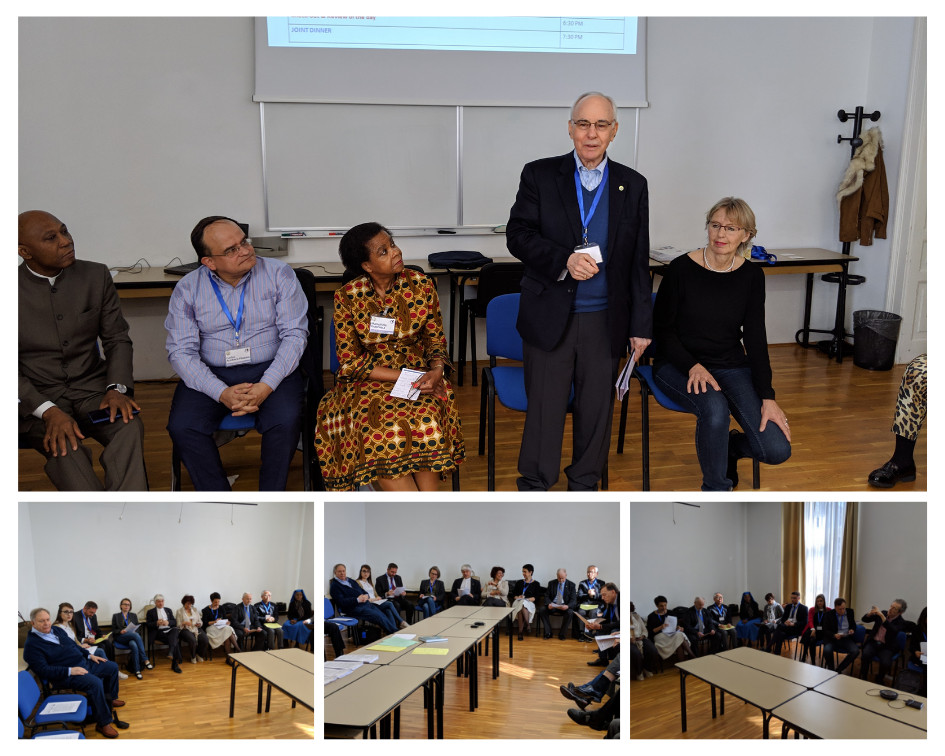
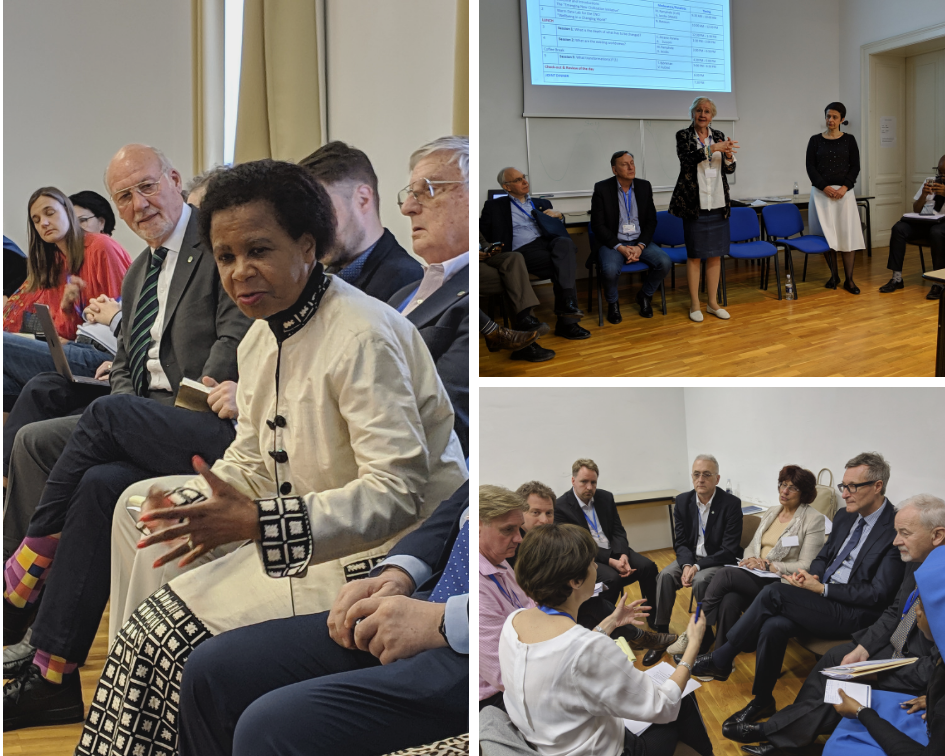
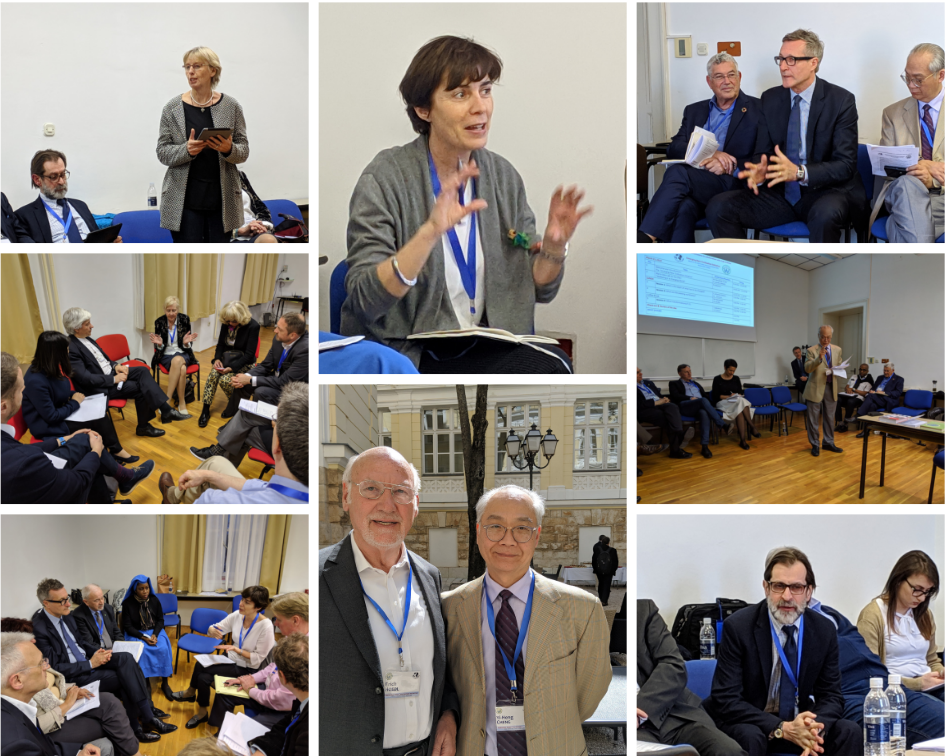
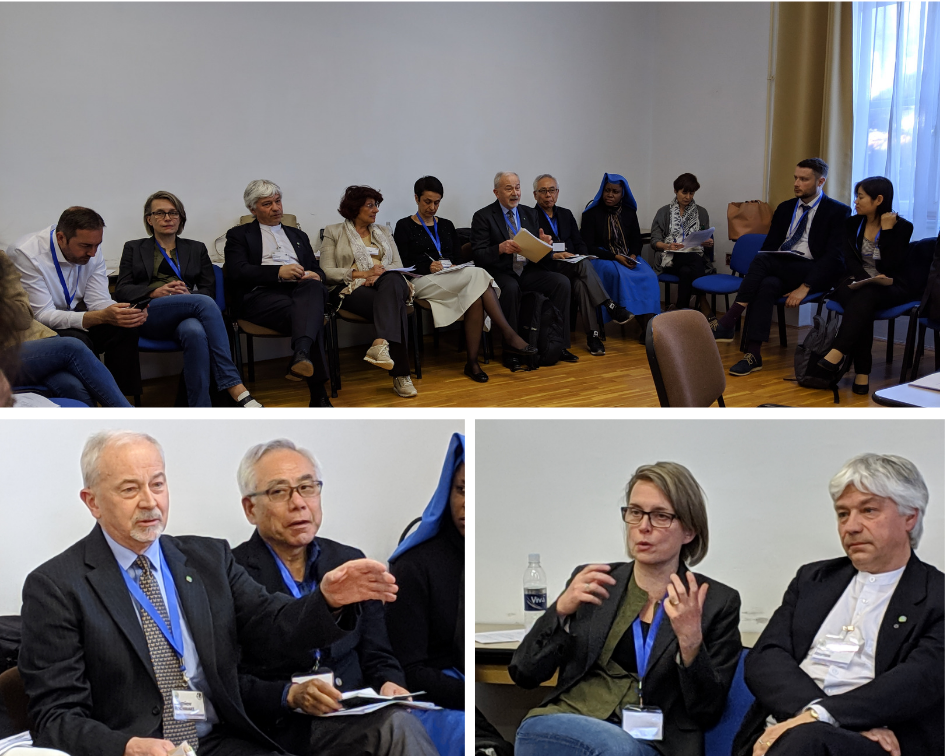
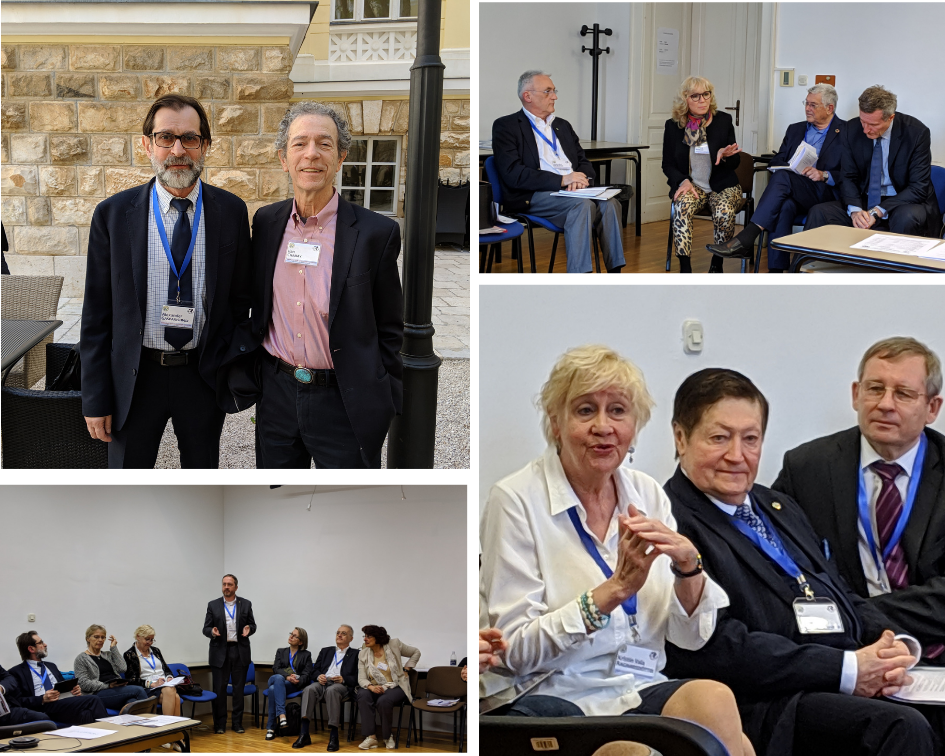
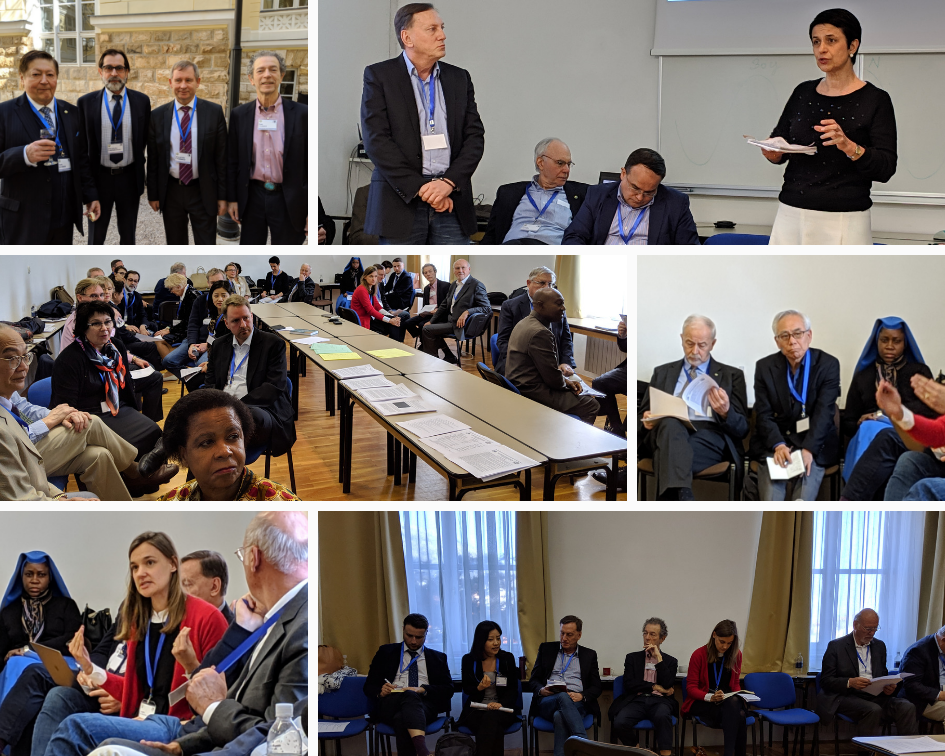
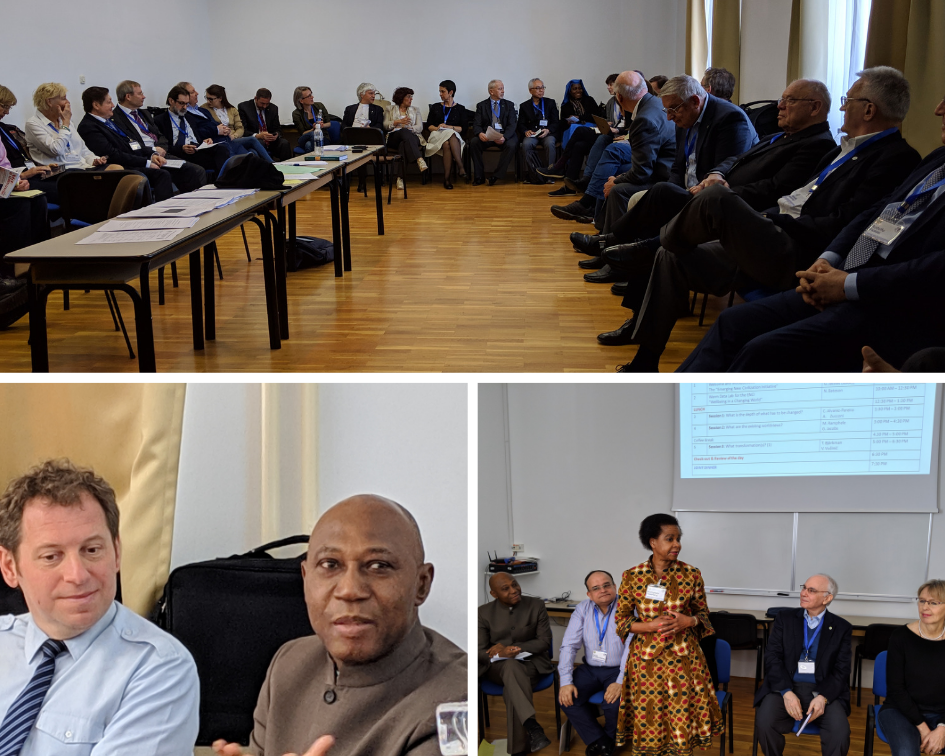
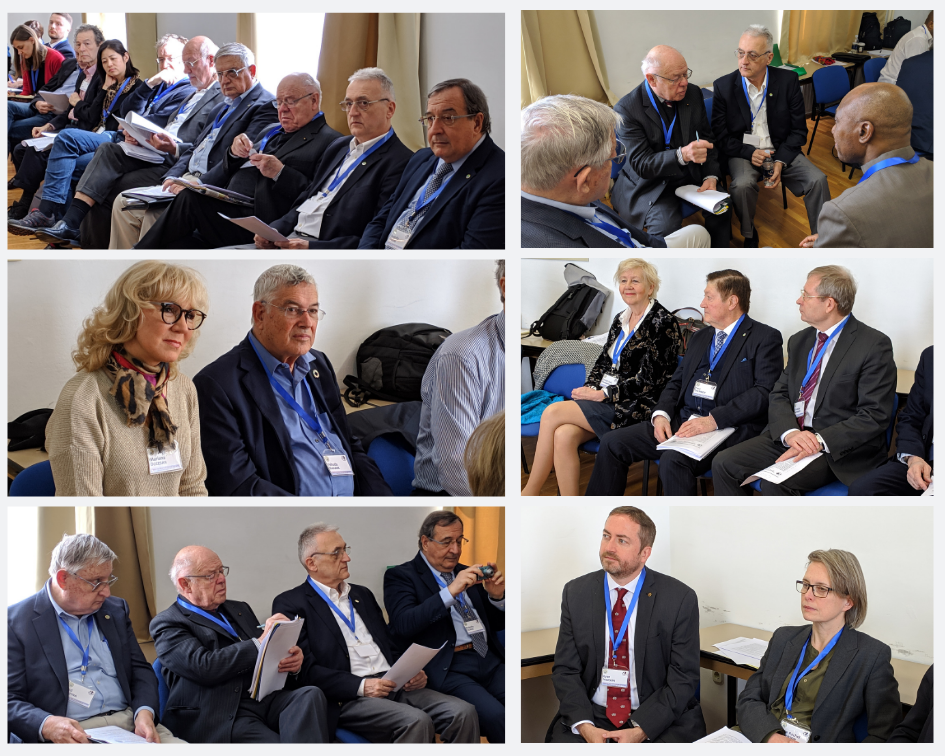
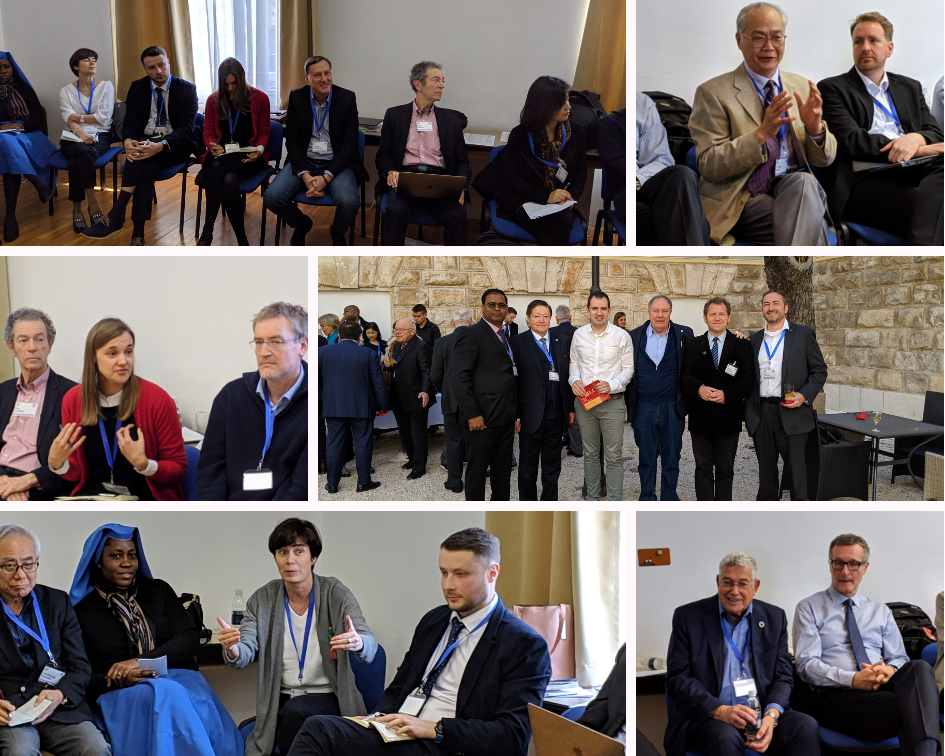
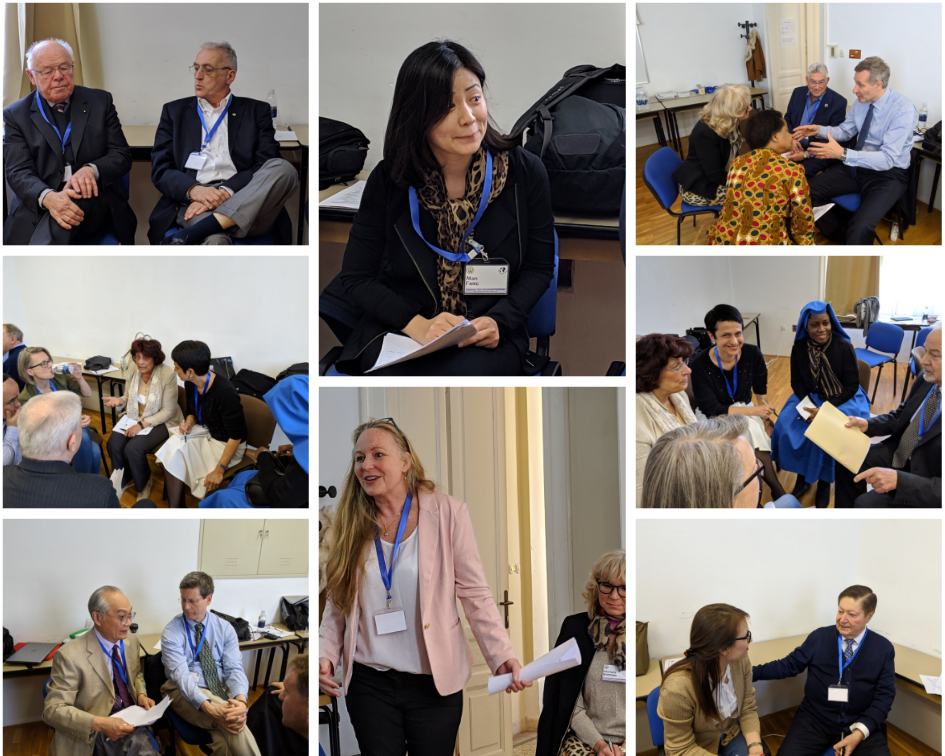
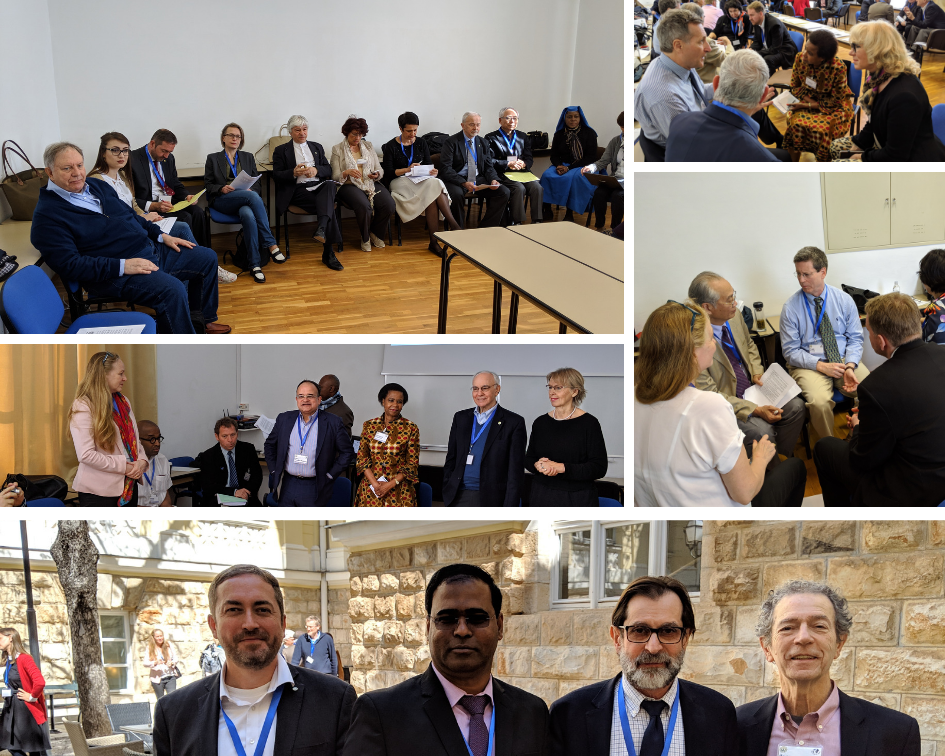
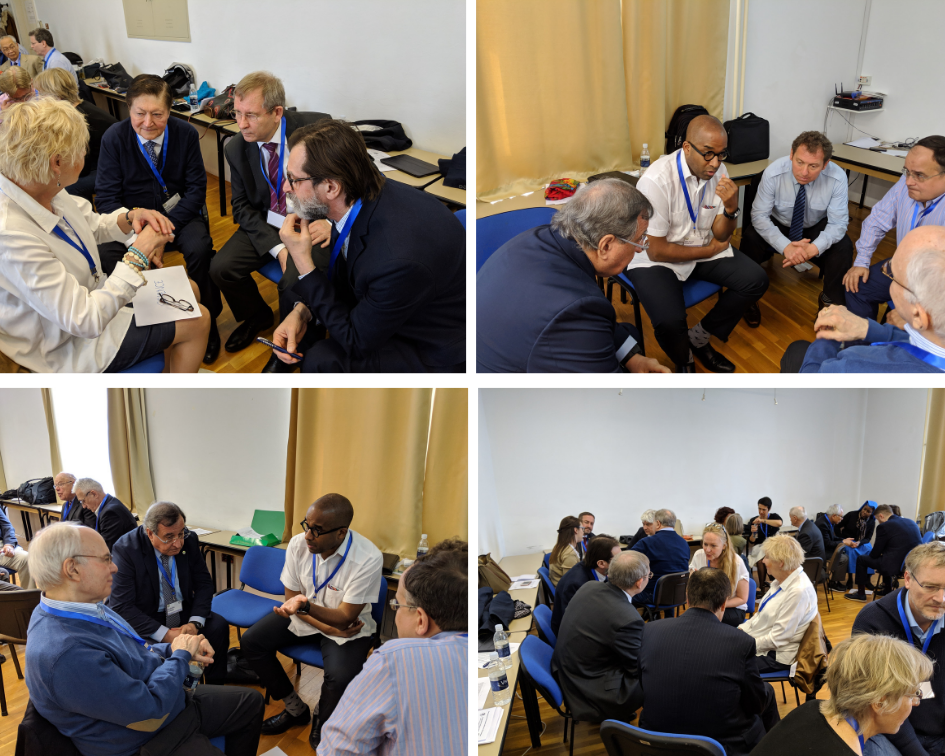
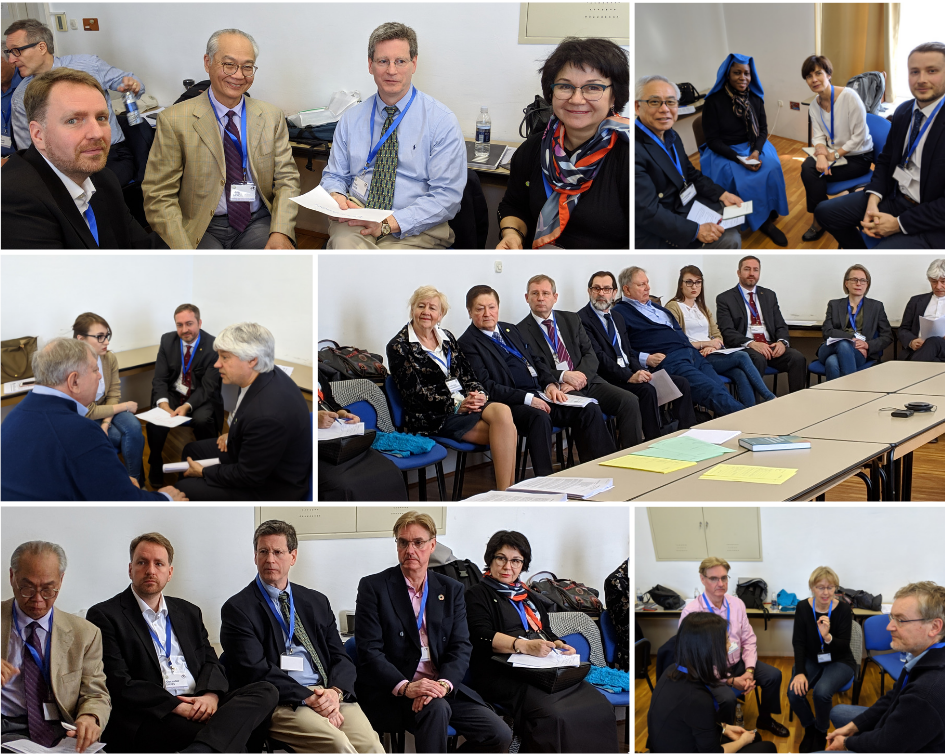
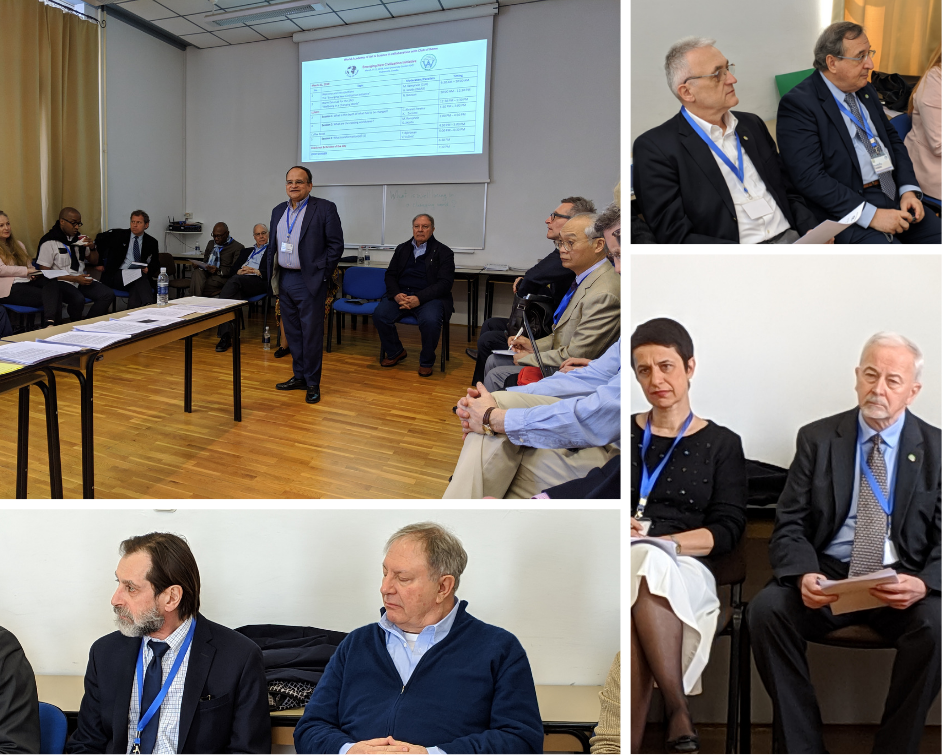


Emerging New Civilization Initiative
March 21-22, 2019
Inter-University Center (IUC), Dubrovnik, Croatia
Inter-University Center (IUC), Dubrovnik, Croatia
List of Participants
- Carlos Alvarez-Pereira: President, The INNAXIS Foundation and Research Institute, Spain; Member of the Executive Committee, Club of Rome; Fellow, WAAS
- Lene Rachel Anderson: Economist, author, futurist; Co-founder, Nordic Bildung, Denmark; Member, Club of Rome
- Nora Bateson: Filmmaker, writer and educator; Founder & President, International Bateson Institute, Sweden; Fellow, WAAS; Member, Club of Rome
- Tomas Björkman: Financier and Social Entrepreneur; Founder, Ekskäret Foundation, Sweden; Co-founder, Perspectiva, England & Co-creation Loft, Germany; Member, Club of Rome
- Zbigniew Bochniarz: Professor, University of Washington Evans School of Public Affairs and Harvard Business School, USA; Member, WAAS Board of Trustees
- Mariana Bozesan: Co-Founder and President, AQAL Capital and AQAL Foundation, Germany; Conscious Leadership Guild; Member, Club of Rome
- Stefan Brunnhuber: Endowed Professor, Psychology & Sustainability, University of Applied Sciences (HSMW), Germany; Medical Director, Diakonie Hospital, Germany; Member, WAAS Board of Trustees; Member, Club of Rome
- Ilan Chabay: Head, Strategic Science Initiatives and Programs, Institute for Advanced Sustainability Studies, Germany; Adjunct Professor, School of Sustainability, Arizona State University, USA; Member, Club of Rome
- Yi-Heng Cheng: CEO of Knauf Asia, China; Asia Deputy Director of International Ecological Development Union; Member, Club of Rome
- Alexander Chumakov: Vice President, Russian Philosophical Society, Russia; Professor, Moscow State University, Russia; Leading Research Fellow, Institute of Philosophy, Russian Academy of Sciences; Fellow, World Academy of Art & Science
- Frank Dixon: Sustainability and System Change Consultant, USA; Author, Global System Change series of books; Associate Fellow, WAAS
- Michael Dorsey: Senior Program Officer, US National Academies of Sciences, Engineering and Medicine, USA; Co-founder, Corner Capital, USA; Member, Club of Rome
- Momir Đurović: Former President, Montenegrin Academy of Sciences & Arts; Member, WAAS Board of Trustees; Professor Emeritus, Electrical engineering, University of Montenegro, Montenegro; Member, Club of Rome
- Man Fanag: Fellow, Institute for Advanced Sustainability Studies, Germany; Member, Chinese Academy of Public Administration
- Fadwa El Guindi: Retiree Professor of Anthropology, University of California, Los Angeles (UCLA), USA; Distinguished Professor of Anthropology, Qatar University, Qatar; Fellow, WAAS
- Rodolfo Fiorini: Professor of Bioengineering at the Department of Electronics, Information and Bioengineering, Politecnico di Milano University, Italy; Fellow, WAAS
- Lawrence Ford: Accredited Investment Fiduciary; Founder and CEO, Conscious Capital Wealth Management, USA; Former Co-Chair of Retirement Income Industry Association
- Alexander Gasparishvili: Professor, Faculty of Global Studies, Lomonosov Moscow State University (MSU); Vice Dean for international cooperation and Deputy Director, Center of the Education Development Strategy, Lomonosov Moscow State University
- Yoshitsugu Hayashi: Emeritus Professor, Nagoya University; Professor, Chubu University, Japan; Member, Club of Rome
- Erich Hoedl: Vice-President, European Academy for Sciences and Arts; Rector at Wuppertal University, Austria and Graz University of Technology, Austria; Visiting Researcher, Columbia University, USA; Member, WAAS Board of Trustees; Member, Club of Rome
- Obiora Francis Ike: Catholic Priest; Founder and Director of the Nigerian Ethics Research Centre; Professor and Chair for Ethics and Intercultural Studies, Godfrey Okoye University, Nigeria; Member, Club of Rome
- Senthil Inbarajan: Software Professional, USA
- Ryan Jackson: Dean of the School of Medicine at Caribbean Medical University; Full Member, Club of Rome
- Garry Jacobs: Chief Executive Officer, World Academy of Art and Science and World University Consortium; Vice-President, The Mother’s Service Society, India; Member, Club of Rome
- Yehuda Kahane: Emeritus Professor, Coller Business and the Porter School of Environmental Studies; Former Head, Institute for Business and the Environment, Tel-Aviv University, Israel; Member, WAAS Board of Trustees
- Sergey Koshman: Executive Director (elected), We are Europeans, Ukraine; Coordinator, Civil Society Movement
- Petra Künkel: Executive Director and Co-Founder, Collective Leadership Institute, Germany; Member of the Executive Committee, Club of Rome
- Donato Kiniger-Passigli: Head of the Fragile States and Disaster Response Group, International Labor Organization, specialized agency of the United Nations, Switzerland; Member of the advisory board, Geneva Peacebuilding Platform; Fellow, WAAS
- Cristina Manzano: Editor-in-chief, esglobal; Deputy Director of FRIDE, an independent think tank, Spain; Associate Member, Club of Rome
- Winston P. Nagan: Chairman, WAAS Board of Trustees; Emeritus Professor of Law, Levin College of Law, University of Florida, USA
- Nebojša Nešković: Secretary-General, World Academy of Art & Science; Former Head of TESLA Project, Vinca Institute of Nuclear Sciences, Serbia
- Natalia Pogozheva: CEO of Green Education Ukraine Foundation; Associate Fellow, World Academy of Art & Science
- Kristín Vala Ragnarsdóttir: Professor of Sustainability Science and former Dean, University of Iceland, Iceland; Distinguished Fellow, Schumacher Institute, UK; Member, Club of Rome
- Mamphela Ramphele: Co-President, Club of Rome; Former Vice-Chancellor, University of Cape Town; Former Managing Director, World Bank; Fellow, WAAS
- Thomas Reuter: Professor, Asia Institute, The University of Melbourne; Senior Vice-President of the International Union of Anthropological and Ethnological Sciences; Fellow, WAAS
- Yury Sayamov: Professor, Faculty of Global Studies; Lomonosov Moscow State University, Russia; UNESCO Chair, Global Problems and Emerging Social and Ethical Challenges for Large Cities and Their Population; Fellow, WAAS
- Alexander Stefes: Executive Director, Club of Rome, Switzerland
- Tibor Tóth: Ambassador, Executive Secretary Emeritus, Comprehensive Nuclear-Test-Ban Treaty Organization PC; Member, WAAS Board of Trustees
- Ted Trzyna: President, InterEnvironment Institute, USA; Co-founder and Chair, Urban Conservation Strategies Specialist Group; Senior Research Fellow, Claremont Graduate University, USA; Fellow, WAAS
- Marcel Van de Voorde: Professor, University of technology Delft, Netherlands; Executive Advisor to Minister for Education & Research, Serbia; Fellow, WAAS
- Josephine von Mitschke-Collande: Programme Manager, The Innaxis Foundation & Research Institute, Spain; Former Research Analyst and Project Manager, Club of Rome
- Vesna Vučinić-Nešković: Professor, Department of Ethnology and Anthropology, Faculty of Philosophy, University of Belgrade, Serbia; President, World Council of Anthropological Associations; Fellow, WAAS
- Jinfeng Zhou: Secretary-General of China Biodiversity Conservation and Green Development Foundation (CBCGDF); Vice Chairman, National Association of Vocational Education of China; Member, Club of Rome
- Alberto Zucconi: President, Person Centered Approach Institute (IACP), Italy; Secretary General, World University Consortium; Member, WAAS Board of Trustees


Emerging New Civilization Initiative
March 21-22, 2019
Inter-University Center (IUC), Dubrovnik, Croatia
Background papers
- Selected quotes from Aurelio Peccei’s “The Human Quality “of 1977 (compiled by Petra Künkel specially for this meeting)
- “Dancing with Systems” by Donella Meadows
- “The Greatest Adventure on Earth” written by Carlos Alvarez-Pereira inspired by a Club of Rome “Networks of Networks” meeting in 2014
- “Swerving” by Nora Bateson
- The Technological Turning Points of An Ecological Civilization by Jinfeng Zhou


Emerging New Civilization Initiative
March 21-22, 2019
Inter-University Center (IUC), Dubrovnik, Croatia
Schedule
21st March 2019 |
|
| 9.30 | Welcome and introductions
The “Emerging New Civilization Initiative” |
| 10:00 | Warm Data Lab for the ENCI
“Wellbeing in a Changing World” |
| 12.30 | Lunch |
| 13.30 | Session #1 |
| 15:00 | Session #2 |
| 16.30 | Coffee break |
| 17:00 | Session #3 |
| 18.30 | Check-out and review of day |
| 19.30 | Joint Dinner |
22nd March 2019 |
|
| 9:00 | Check-in and review of day 1 |
| 9.30 | Session #4 |
| 11:00 | Coffee break |
| 11.30 | Session #5 |
| 13:00 | Lunch |
| 14:00 | Session #6 |
| 16:00 | Coffee break |
| 16.30 | ENCI as a starting point for creating a landscape of initiatives / advocacy / projects / activities that aim at catalyzing a New Civilization
Dialogue and recommendations from attendants Operational aspects: the roles of CoR and WAAS, the role of partnership, effective collaboration, what´s next? |
| 18:00 | Check-out and review of gathering |
| 19:00 | Joint Dinner (TBC) |
Structure of Sessions
In the morning of Day 1, the initial session is a Warm Data Lab hosted by Nora Bateson on the topic “Wellbeing in a changing world”. The Topic Sessions start in the afternoon and their contents are structured around sets of questions, as follows.
Session 1. What is the depth of what has to be changed?
What are the blind spots leading us to collective suicide? What are the gaps between the complexity of life and our conscious purposes? How can we change our frameworks of interpretation / mindsets / consciousness / epistemologies? Moderators: Carlos Alvarez Pereira / Alberto Zucconi
Session 2. What are the existing worldviews?
What are the perspectives from Most of the World? How do these interact with the dominant ones? What are the alternative worldviews everywhere? What could we learn from traditional cultures and their so different relationship to the biosphere? What new thinking and frameworks are emerging? Moderators: Mamphela Ramphele / Garry Jacobs
Session 3. What transformation(s)? (1)
Do civilizations change without collapsing? Do we have historical precedents? What are the constraints of the natural environment under which any new civilization must emerge? What is wellbeing? How do we redefine human aspirations in harmony with the biosphere and future generations? Moderators: Tomas Björkman / Vesna Vucinic
Session 4. What transformation(s)? (2)
What can we learn from past successes and failures? How do we promote regenerative systems, economies, communities? What is the role of science, technology and innovation as they are framed today? What is the role of art and creation? Moderators: Lene Andersen / Thomas Reuter
Session 5. What tools do we have? And what obstacles?
What and who transforms what? What role for transformation literacy? What role for the liminal and the indirect? What triggers are needed for the emergence of desirable futures? Which processes, systems and powers hold the world back or accelerate the self-delusion? Moderators: Petra Künkel / Zbigniew Bochniarz
Session 6. Emergence from emergency. How do we give hope?
How is the naming and framing of ENCI perceived? What does “New Civilization(s?)” mean for different audiences? How can a new paradigm emerge whilst fighting urgent fires and preventing the chaos of division and hate? How do we mobilize the people facing collapse? How do we create and sustain hope? Moderators: Nora Bateson / Nebojsa Neskovic